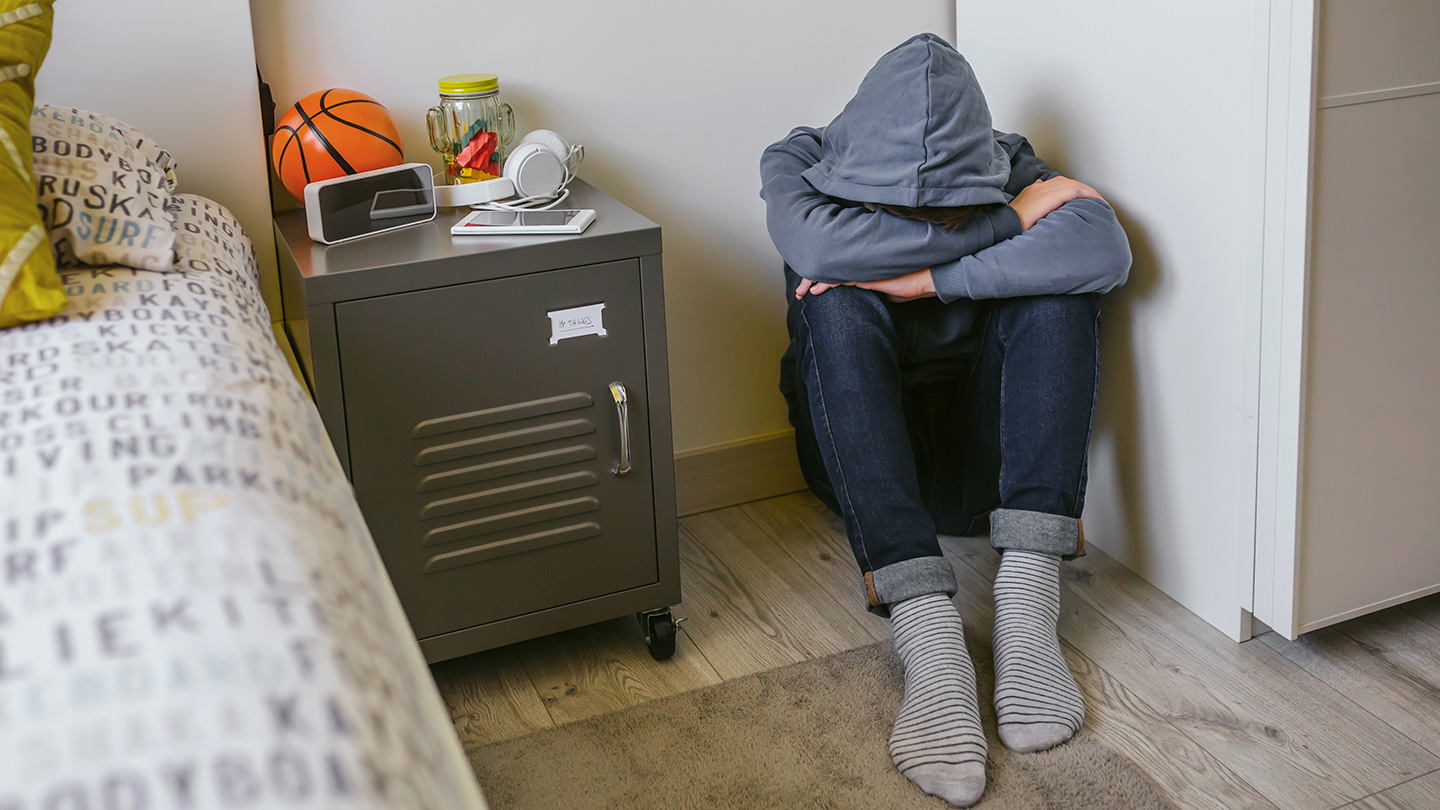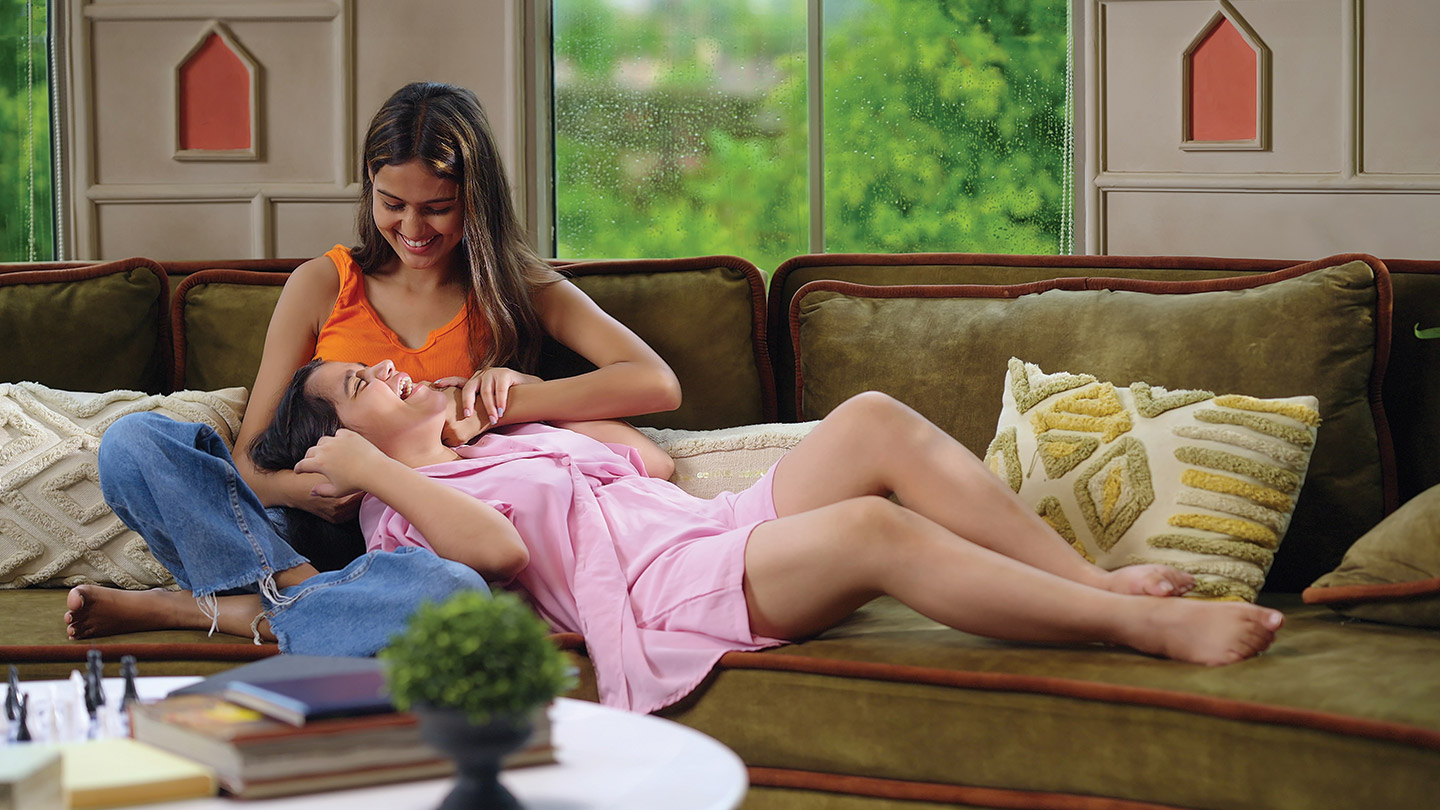Parenting
10 Social Skills To Teach Your Little One
Teach your pre-schooler these skills to help them navigate the world with confidence and kindness.

Social skills are the foundation for emotional intelligence, connections, and everyday interaction. For preschoolers, learning how to connect with others is a crucial developmental milestone. When you teach kids how to mingle and interact with people around them, you help them navigate the world with confidence and kindness.
Need all your wellness solutions in one place? A whole new world awaits just a click away.
In these early years, children begin to form friendships, explore group play, and respond to emotional cues, all of which shape their understanding of social dynamics. This stage is the perfect opportunity to introduce positive behaviors that stick for life.
Related story: How To Encourage Your Child To Be Active
10 Pre-school Social Skills to Teach Your Little One
Every conversation, every shared story, and every guided playdate is part of social skills training for kids. By incorporating these 10 preschool social skills to teach your little one, you’re giving your child tools they’ll use for a lifetime in friendships, classrooms, careers, and communities.
1. Ability to Connect And Make Friends: One of the most important social skills for kids is learning how to make friends. Making friends requires confidence, communication, and emotional awareness. Children must feel encouraged to reach out to others. In this way, they will be able to express their ability to connect without any fear. Start by modelling friendly behaviour and creating opportunities for your child to engage in play with peers. Teach your little one phrases like “Hi, my name is…” or “Can I play too?”. By encouraging your kid to make friends early on, you help them develop self-esteem and a sense of belonging.
2. Learning to Share: Sharing is often one of the biggest challenges and lessons in early childhood. It teaches kids the importance of fairness, cooperation, and patience. This habit can be tough for little kids, but it’s also one of the most important lessons. It helps them understand fairness, learn how to work with others, and practice patience. Taking turns is a great way to teach kids how to wait and be kind in group settings. You can show your child how to do this by playing games together or sharing things at home.
Related story: 4 Reasons Your Child need More Playdates
3. Active Listening: Teaching your kid active listening is imperative as it shows interest and understanding of the message. For pre-schoolers, this means learning to pause, look at the speaker, and respond appropriately. You can teach active listening by reading stories together and asking follow-up questions like “What do you think will happen next?” or “How do you think that character feels?” Helping your child practice these habits regularly to improve their communication. Not just listening attentively, but waiting their turn to speak is also a social skill that kids need to learn.
4. Conveying Emotions: Being able to name feelings is one of the key elements to improve your child's social skills. Pre-schoolers often struggle with big emotions like frustration or sadness because they don’t yet have the words to express them. Encourage your child to name their feelings with simple phrases such as “I feel mad”, “I'm sad” or “I’m excited.” Visual aids like emotion charts or expressive puppets can make this process fun and engaging. When kids can talk about their emotions, they’re less likely to act out and more likely to connect meaningfully with others.
Related story: What Is Your Parenting Style
5. Following Directions: Pre-school familiarises children with group settings where listening to instructions is crucial. Learning how to follow directions teaches respect, order, and self-regulation. Start with simple two-step commands like “Pick up your toys and put them in the basket” or “Whisper an action in their ears and tell them to do it”. Practicing this skill helps prepare your child for structured settings like school and other team-based environments.
Related Story: Teaching Kids To Label Their Feelings
6. Understanding Boundaries: Teaching children about personal space is essential for healthy social interaction. Young kids are naturally curious and may not yet understand physical boundaries, which can lead to discomfort for others. To teach kids how to mingle respectfully:
- Use playful ways to show them what respecting personal space means hula hoops or arm-length distances can serve as great visual tools.
- Talk about “personal bubbles” and reinforce the idea that everyone has the right to feel safe and comfortable. This sets the groundwork for empathy, consent, and respectful behavior later in life.
Related story: How To Inculcate Body Positivity In Your Child
7. Understanding Empathy: When you teach your child empathy, you're helping them build a deep emotional connection with others. Empathetic children are more likely to be compassionate friends, resolve conflicts peacefully, and behave kindly in group settings. Empathy allows kids to sense how someone else is feeling and respond with care.
- Use books, movies, or real-life situations to ask reflective questions like, “How would you feel if that happened to you?” or “What can we do to help?”
- Encourage your child to look at facial expressions and body language to identify others’ emotions.
Related Story: 20 Phrases Your Child Wants To Hear
8. Problem-Solving Ability: Even preschoolers face social dilemmas, from toy disputes to playground misunderstandings. That’s why it’s so important to prepare them with problem-solving mastery.
Teach your child how to pause, use their words, and think of different solutions. For example, if two kids want the same toy, they can choose to take turns, play together, or find another toy.
Role-playing is a great way to practice these scenarios. Over time, kids develop the confidence to handle tricky situations calmly and independently.
Related story: Teach Your Kids This About Body Safety And Abuse Awareness
9. Saying Sorry and Forgiving: Apologising and forgiving behaviours are an important part of a child's emotional growth. Teaching your child to say “I’m sorry” when they hurt someone (intentionally or not) helps them take responsibility for their actions. Likewise, learning to forgive helps children let go of anger and maintain friendships. Be a role model for your child and let your child see you apologise when necessary and talk about how it helps people feel better and stay connected.
Related Story: Working Parents Guide: How To Develop Good Habits In Your Child
10. Boosting Confidence: Not every child leaps into new social settings, and that’s okay. Some kids are naturally shy and need more time to warm up. You can help improve your child’s social skills by gradually introducing them to group settings and giving them space to observe before engaging. Practice role-playing common social interactions and offer praise when they take small social risks. The goal is to make socialising feel safe, fun, and rewarding, rather than overwhelming.
Related Story: Building Good Habits in Kids - How to Give Back During Holidays
Do not forget, parents are the first teachers and important ones. Raising socially skilled children isn’t about rigid rules or constant correction. It’s about being intentional, loving, and consistent. It’s not about perfect behavior, but about practicing and growing together. Keep cheering them on, modeling empathy, and creating chances for them to engage with the world.
Need all your wellness solutions in one place? A whole new world awaits just a click away.
EXPLORE MORE
Caught between social media likes and academic pressure, today’s teens are silently battling anxiety, identity crises, and the fear of not being enough. Here’s a closer look at what growing up really feels like in their world.
Teenage drama is more than mood swings; it’s rooted in biology, culture, and communication gaps. Here’s how teens (and the adults around them) can resolve conflicts with empathy, humour, and strategy.
A mother–daughter bond is one of the most powerful relationships. Discover parenting tips, meaningful activities, and proven ways to nurture a lifelong connection built on trust, empathy, and joy.
Money lessons matter more than ever. Here’s how you can teach your kids financial literacy, step by step.








